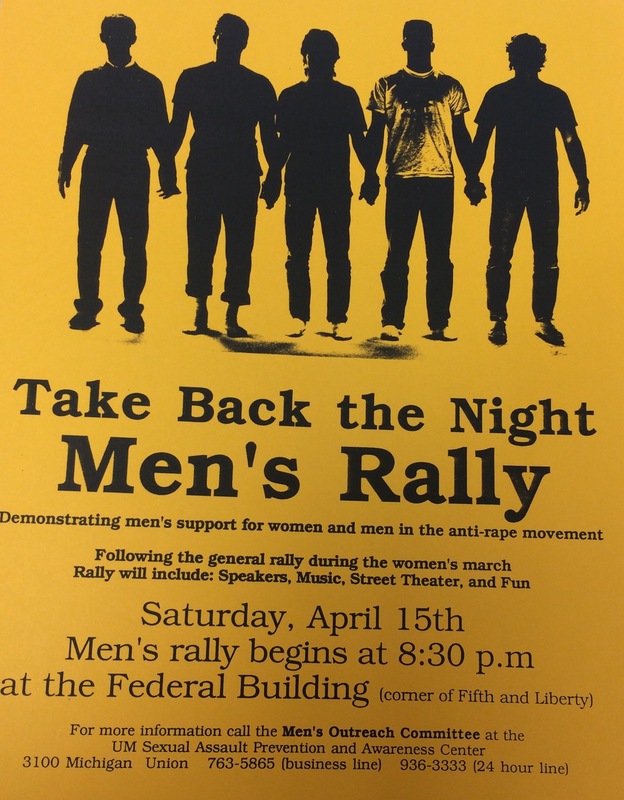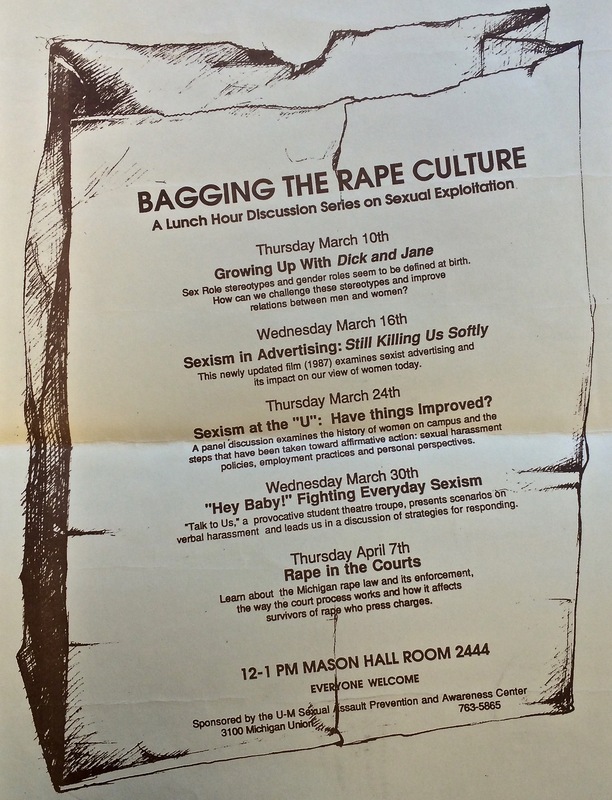Survivors and Their Stories: Sexual Assault on Campus
The Sexual Assault Prevention and Awareness Center, or SAPAC, was created after an anti-rape sit-in in 1985. Three years later, SAPAC opened their 24-Hour Crisis Line and twenty years after that they initiated a nationally renowned program called "Striving for Justice: A Toolkit for Judicial Resolution Officers on College Campuses."
Since its inception, SAPAC has been fighting against myths about rape and educating students and faculty on the prevalence of acquaintance rape, the fact that rape is never the survivor’s fault, the resources are available to survivors, and how to be a support system for a friend that has experienced the trauma of sexual assault. U-M was one of the first universities in the country to provide information to incoming freshmen during summer orientation about acquaintance rape and safety.
However, the office has received varying levels of support and respect across the campus over the years and their upward battle has been a long and grueling one. U-M had the first two sexual assault cases ever in which the assailant sued his female victim for defamation of character in a civil suit before there was a verdict in his criminal case.
Student athlete responses to the SAPAC Workshop Evaluation of 1999 revealed that many male athletes didn’t fully comprehend how consent to sexual activity is given — or, more gravely, not given. Responses across several different teams indicated that men felt they were being treated unfairly — that in peer education workshops given by SAPAC and similar organizations men were always portrayed as the “bad guy,” that women needed to learn how to “defend themselves,” and that women weren’t held responsible for their own actions. Several athletes on certain teams felt that they were being punished for the actions of the football team — the men of which had by far the most negative responses.
"U-M Sexual Assault Prevention and Awareness Center," U-M Sexual Assault Prevention and Awareness Center Records, 1985-2009, Bentley Historical Library, University of Michigan.


